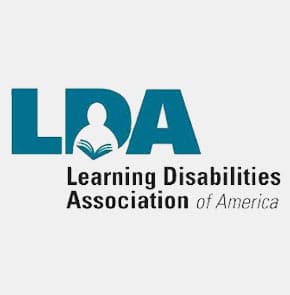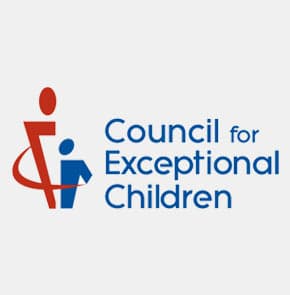What Does a Teaching Career in Special Education Entail?
A career as a special education teacher entails loads of hard work, dedication, education, licensure, and a commitment to maintaining your license and developing best professional practices after completing a special education program. The first step to a career working in this field is a college education, to which students have greater access than ever with increasing online degree options, including for core courses for special education programs. Though you cannot always earn a specific special education degree, teaching students can earn their degree and then gain a special education endorsement that can let them teach students with autism spectrum disorders, learning disabilities, intellectual disabilities, those who require assistive technology, and those with other moderate and severe disabilities. You can start out with an online or on-campus associate's and work as a ParaPro helping special education teachers with their classes or you could dive directly into one of several special education degree programs (a traditional or online bachelor's in special education takes four years to complete) and receive your teacher's license shortly after graduation, giving you options for teaching students in your own class. Both public and private schools offer these positions to special education teachers with the right special education degree.
If you are already teaching, but wish to transition over to a special education classroom, such as in early childhood special education, you could attain a certificate or even an online master's specializing in the special education field. Online courses are common even in special education programs and you can learn more about classroom management, special education law, moderate and severe disabilities, and how to teach children with intellectual disabilities and learning disabilities.
Featured Online Programs
Top 15 Best Online Associate in Special Education Programs
Concordia University-Saint Paul
Score: 83.77
- Undergraduate Tuition
- In-State: $25,000
- Out-of-State:$25,000
- Net Price: $17,989
- Acceptance Rate: 75%
- Retention Rate: 67%
- Graduation Rate: 59%
- Total Enrollment: 5,854
- Undergrad Students: 3,146
- Graduate Students: 2,708
- Grads Salary: $48,800
- Student-to-faculty: 15:1
Rasmussen University-Florida
Score: 76.6
- Undergraduate Tuition
- In-State: $15,117
- Out-of-State:$15,117
- Net Price: $18,063
- Acceptance Rate: 100%
- Retention Rate: 67%
- Graduation Rate: 51%
- Total Enrollment: 3,034
- Undergrad Students: 3,034
- Graduate Students: 229
- Grads Salary: $45,700
- Student-to-faculty: 9:1
Northwest Nazarene University
Score: 74.27
- Undergraduate Tuition
- In-State: $39,370
- Out-of-State:$39,370
- Net Price: $27,291
- Acceptance Rate: 63%
- Retention Rate: 79%
- Graduation Rate: 60%
- Total Enrollment: 1,774
- Undergrad Students: 1,156
- Graduate Students: 618
- Grads Salary: $39,000
- Student-to-faculty: 14:1
Georgia State University
Score: 71.82
- Undergraduate Tuition
- In-State: $8,478
- Out-of-State:$23,709
- Net Price: $16,390
- Acceptance Rate: 62%
- Retention Rate: 78%
- Graduation Rate: 54%
- Total Enrollment: 34,974
- Undergrad Students: 27,588
- Graduate Students: 7,386
- Grads Salary: $35,800
- Student-to-faculty: 25:1
Liberty University
Score: 69.47
- Undergraduate Tuition
- In-State: $21,222
- Out-of-State:$21,222
- Net Price: $29,692
- Acceptance Rate: 99%
- Retention Rate: 79%
- Graduation Rate: 63%
- Total Enrollment: 103,068
- Undergrad Students: 52,823
- Graduate Students: 50,245
- Grads Salary: $40,600
- Student-to-faculty: 18:1
Dallas College
Score: 65.59
- Undergraduate Tuition
- In-State: $4,050
- Out-of-State:$6,000
- Net Price: $4,068
- Acceptance Rate: 100%
- Retention Rate: 89%
- Graduation Rate: 36%
- Total Enrollment: 66,592
- Undergrad Students: 66,592
- Graduate Students: N/A
- Grads Salary: $32,500
- Student-to-faculty: 23:1
Georgia Northwestern Technical College
Score: 63.11
- Undergraduate Tuition
- In-State: $3,132
- Out-of-State:$5,532
- Net Price: $2,310
- Acceptance Rate: 100%
- Retention Rate: 60%
- Graduation Rate: 34%
- Total Enrollment: 6,742
- Undergrad Students: 6,742
- Graduate Students: N/A
- Grads Salary: $32,100
- Student-to-faculty: 20:1
Barton Community College
Score: 62.09
- Undergraduate Tuition
- In-State: $3,904
- Out-of-State:$4,832
- Net Price: $11,329
- Acceptance Rate: 100%
- Retention Rate: 51%
- Graduation Rate: 43%
- Total Enrollment: 4,393
- Undergrad Students: 4,393
- Graduate Students: N/A
- Grads Salary: $33,000
- Student-to-faculty: 18:1
Post University
Score: 62.02
- Undergraduate Tuition
- In-State: $17,100
- Out-of-State:$17,100
- Net Price: $18,619
- Acceptance Rate: 100%
- Retention Rate: 32%
- Graduation Rate: 35%
- Total Enrollment: 21,699
- Undergrad Students: 19,575
- Graduate Students: 2,124
- Grads Salary: $43,500
- Student-to-faculty: 16:1
Tyler Junior College
Score: 61.99
- Undergraduate Tuition
- In-State: $5,002
- Out-of-State:$5,752
- Net Price: $9,148
- Acceptance Rate: 100%
- Retention Rate: 61%
- Graduation Rate: 27%
- Total Enrollment: 11,977
- Undergrad Students: 11,977
- Graduate Students: N/A
- Grads Salary: $37,800
- Student-to-faculty: 18:1
Lehigh Carbon Community College
Score: 60.6
- Undergraduate Tuition
- In-State: $9,210
- Out-of-State:$13,205
- Net Price: $8,956
- Acceptance Rate: 100%
- Retention Rate: 62%
- Graduation Rate: 28%
- Total Enrollment: 6,385
- Undergrad Students: 6,385
- Graduate Students: N/A
- Grads Salary: $36,500
- Student-to-faculty: 21:1
Georgia Highlands College
Score: 59.89
- Undergraduate Tuition
- In-State: $2,944
- Out-of-State:$9,296
- Net Price: $6,779
- Acceptance Rate: 100%
- Retention Rate: 67%
- Graduation Rate: 21%
- Total Enrollment: 4,955
- Undergrad Students: 4,955
- Graduate Students: N/A
- Grads Salary: $36,500
- Student-to-faculty: 20:1
College of Southern Nevada
Score: 57.49
- Undergraduate Tuition
- In-State: $4,110
- Out-of-State:$12,209
- Net Price: $7,293
- Acceptance Rate: 100%
- Retention Rate: 79%
- Graduation Rate: 18%
- Total Enrollment: 29,081
- Undergrad Students: 29,081
- Graduate Students: N/A
- Grads Salary: $34,100
- Student-to-faculty: 21:1
Northampton Community College
Score: 56.1
- Undergraduate Tuition
- In-State: $10,980
- Out-of-State:$14,730
- Net Price: $10,117
- Acceptance Rate: 100%
- Retention Rate: 65%
- Graduation Rate: 21%
- Total Enrollment: 8,695
- Undergrad Students: 8,695
- Graduate Students: N/A
- Grads Salary: $34,000
- Student-to-faculty: 19:1
PennWest Clarion
Score: 36.93
- Undergraduate Tuition
- In-State: $11,388
- Out-of-State:$16,006
- Net Price: $19,579
- Acceptance Rate: 94%
- Retention Rate: 70%
- Graduation Rate: 51%
- Total Enrollment: 11,305
- Undergrad Students: 8,336
- Graduate Students: 2,969
- Grads Salary: N/A
- Student-to-faculty: 17:1
Top 25 Best Online Bachelors in Special Education Programs
University of Georgia
Score: 90.39
- Undergraduate Tuition
- In-State: $11,180
- Out-of-State:$30,220
- Net Price: $16,303
- Acceptance Rate: 37%
- Retention Rate: 95%
- Graduation Rate: 87%
- Total Enrollment: 41,615
- Undergrad Students: 31,514
- Graduate Students: 10,101
- Grads Salary: $73,000
- Student-to-faculty: 17:1
University of Florida-Online
Score: 89.51
- Undergraduate Tuition
- In-State: $3,876
- Out-of-State:$16,579
- Net Price: $10,412
- Acceptance Rate: 64%
- Retention Rate: 94%
- Graduation Rate: 78%
- Total Enrollment: 5,462
- Undergrad Students: 5,462
- Graduate Students: N/A
- Grads Salary: $79,000
- Student-to-faculty: 51:1
Texas A&M University-College Station
Score: 88.38
- Undergraduate Tuition
- In-State: $13,099
- Out-of-State:$40,328
- Net Price: $21,610
- Acceptance Rate: 63%
- Retention Rate: 94%
- Graduation Rate: 84%
- Total Enrollment: 76,633
- Undergrad Students: 59,933
- Graduate Students: 16,700
- Grads Salary: $80,000
- Student-to-faculty: 19:1
Florida International University
Score: 85.69
- Undergraduate Tuition
- In-State: $6,565
- Out-of-State:$18,963
- Net Price: $10,742
- Acceptance Rate: 59%
- Retention Rate: 92%
- Graduation Rate: 74%
- Total Enrollment: 53,953
- Undergrad Students: 44,363
- Graduate Students: 9,590
- Grads Salary: $71,000
- Student-to-faculty: 24:1
University of Arizona
Score: 82.21
- Undergraduate Tuition
- In-State: $13,626
- Out-of-State:$41,095
- Net Price: $18,144
- Acceptance Rate: 86%
- Retention Rate: 88%
- Graduation Rate: 66%
- Total Enrollment: 53,001
- Undergrad Students: 41,899
- Graduate Students: 11,102
- Grads Salary: $80,000
- Student-to-faculty: 19:1
University of Missouri-Columbia
Score: 82.08
- Undergraduate Tuition
- In-State: $14,130
- Out-of-State:$34,338
- Net Price: $20,006
- Acceptance Rate: 77%
- Retention Rate: 91%
- Graduation Rate: 76%
- Total Enrollment: 31,013
- Undergrad Students: 23,613
- Graduate Students: 7,400
- Grads Salary: $73,000
- Student-to-faculty: 17:1
Texas Tech University
Score: 81.96
- Undergraduate Tuition
- In-State: $11,852
- Out-of-State:$24,451
- Net Price: $16,773
- Acceptance Rate: 71%
- Retention Rate: 85%
- Graduation Rate: 67%
- Total Enrollment: 40,773
- Undergrad Students: 32,635
- Graduate Students: 8,138
- Grads Salary: $76,000
- Student-to-faculty: 21:1
University of North Carolina at Charlotte
Score: 81.84
- Undergraduate Tuition
- In-State: $7,214
- Out-of-State:$21,876
- Net Price: $13,768
- Acceptance Rate: 80%
- Retention Rate: 85%
- Graduation Rate: 68%
- Total Enrollment: 30,298
- Undergrad Students: 23,981
- Graduate Students: 6,317
- Grads Salary: $74,000
- Student-to-faculty: 21:1
Arizona State University
Score: 81.49
- Undergraduate Tuition
- In-State: $12,051
- Out-of-State:$32,193
- Net Price: $16,401
- Acceptance Rate: 90%
- Retention Rate: 85%
- Graduation Rate: 68%
- Total Enrollment: 79,593
- Undergrad Students: 65,174
- Graduate Students: 14,419
- Grads Salary: $77,000
- Student-to-faculty: 18:1
Kansas State University
Score: 80.74
- Undergraduate Tuition
- In-State: $10,942
- Out-of-State:$27,816
- Net Price: $18,745
- Acceptance Rate: 79%
- Retention Rate: 87%
- Graduation Rate: 70%
- Total Enrollment: 19,745
- Undergrad Students: 15,113
- Graduate Students: 4,632
- Grads Salary: $74,000
- Student-to-faculty: 18:1
University of Mary
Score: 80.42
- Undergraduate Tuition
- In-State: $21,468
- Out-of-State:$21,468
- Net Price: $19,225
- Acceptance Rate: 78%
- Retention Rate: 83%
- Graduation Rate: 68%
- Total Enrollment: 3,794
- Undergrad Students: 2,650
- Graduate Students: 1,144
- Grads Salary: $75,000
- Student-to-faculty: 10:1
University of South Carolina-Columbia
Score: 80.38
- Undergraduate Tuition
- In-State: $12,688
- Out-of-State:$34,934
- Net Price: $26,068
- Acceptance Rate: 61%
- Retention Rate: 91%
- Graduation Rate: 78%
- Total Enrollment: 36,579
- Undergrad Students: 28,470
- Graduate Students: 8,109
- Grads Salary: $71,000
- Student-to-faculty: 18:1
West Virginia University
Score: 79.61
- Undergraduate Tuition
- In-State: $9,648
- Out-of-State:$27,360
- Net Price: $13,691
- Acceptance Rate: 86%
- Retention Rate: 81%
- Graduation Rate: 61%
- Total Enrollment: 24,200
- Undergrad Students: 18,615
- Graduate Students: 5,585
- Grads Salary: $75,000
- Student-to-faculty: 17:1
University of Cincinnati
Score: 79.29
- Undergraduate Tuition
- In-State: $13,570
- Out-of-State:$30,582
- Net Price: $21,511
- Acceptance Rate: 88%
- Retention Rate: 86%
- Graduation Rate: 72%
- Total Enrollment: 43,338
- Undergrad Students: 31,184
- Graduate Students: 12,154
- Grads Salary: $74,000
- Student-to-faculty: 19:1
University of North Dakota
Score: 78.72
- Undergraduate Tuition
- In-State: $10,951
- Out-of-State:$15,570
- Net Price: $18,227
- Acceptance Rate: 77%
- Retention Rate: 83%
- Graduation Rate: 63%
- Total Enrollment: 14,172
- Undergrad Students: 10,216
- Graduate Students: 3,956
- Grads Salary: $74,000
- Student-to-faculty: 17:1
Drexel University
Score: 78.35
- Undergraduate Tuition
- In-State: $60,663
- Out-of-State:$60,663
- Net Price: $42,342
- Acceptance Rate: 78%
- Retention Rate: 90%
- Graduation Rate: 77%
- Total Enrollment: 21,703
- Undergrad Students: 13,589
- Graduate Students: 8,114
- Grads Salary: $84,000
- Student-to-faculty: 9:1
East Carolina University
Score: 77.45
- Undergraduate Tuition
- In-State: $7,361
- Out-of-State:$23,638
- Net Price: $14,470
- Acceptance Rate: 90%
- Retention Rate: 82%
- Graduation Rate: 62%
- Total Enrollment: 26,785
- Undergrad Students: 21,328
- Graduate Students: 5,457
- Grads Salary: $71,000
- Student-to-faculty: 17:1
University of Wisconsin-Whitewater
Score: 77.42
- Undergraduate Tuition
- In-State: $8,250
- Out-of-State:$17,916
- Net Price: $13,670
- Acceptance Rate: 83%
- Retention Rate: 78%
- Graduation Rate: 64%
- Total Enrollment: 11,519
- Undergrad Students: 9,812
- Graduate Students: 1,707
- Grads Salary: $69,000
- Student-to-faculty: 20:1
Concordia University-Wisconsin
Score: 76.69
- Undergraduate Tuition
- In-State: $34,250
- Out-of-State:$34,250
- Net Price: $28,060
- Acceptance Rate: 68%
- Retention Rate: 78%
- Graduation Rate: 64%
- Total Enrollment: 5,063
- Undergrad Students: 2,525
- Graduate Students: 2,538
- Grads Salary: $77,000
- Student-to-faculty: 12:1
Western Governors University
Score: 76.25
- Undergraduate Tuition
- In-State: $8,300
- Out-of-State:$8,300
- Net Price: $9,555
- Acceptance Rate: 100%
- Retention Rate: 62%
- Graduation Rate: 51%
- Total Enrollment: 185,015
- Undergrad Students: 135,822
- Graduate Students: 49,193
- Grads Salary: $79,000
- Student-to-faculty: 42:1
Biola University
Score: 76.01
- Undergraduate Tuition
- In-State: $46,704
- Out-of-State:$46,704
- Net Price: $30,510
- Acceptance Rate: 60%
- Retention Rate: 85%
- Graduation Rate: 69%
- Total Enrollment: 5,296
- Undergrad Students: 3,395
- Graduate Students: 1,901
- Grads Salary: $72,000
- Student-to-faculty: 14:1
Midwestern State University
Score: 75.58
- Undergraduate Tuition
- In-State: $10,310
- Out-of-State:$12,260
- Net Price: $11,798
- Acceptance Rate: 87%
- Retention Rate: 63%
- Graduation Rate: 41%
- Total Enrollment: 5,573
- Undergrad Students: 4,508
- Graduate Students: 1,065
- Grads Salary: $81,000
- Student-to-faculty: 16:1
University of Toledo
Score: 75.11
- Undergraduate Tuition
- In-State: $12,377
- Out-of-State:$21,737
- Net Price: $17,927
- Acceptance Rate: 95%
- Retention Rate: 76%
- Graduation Rate: 56%
- Total Enrollment: 14,939
- Undergrad Students: 11,447
- Graduate Students: 3,492
- Grads Salary: $75,000
- Student-to-faculty: 18:1
University of the Cumberlands
Score: 74.92
- Undergraduate Tuition
- In-State: $9,875
- Out-of-State:$9,875
- Net Price: $11,555
- Acceptance Rate: 71%
- Retention Rate: 81%
- Graduation Rate: 46%
- Total Enrollment: 20,327
- Undergrad Students: 6,091
- Graduate Students: 14,236
- Grads Salary: $70,000
- Student-to-faculty: 19:1
University of Wisconsin-Stout
Score: 74.87
- Undergraduate Tuition
- In-State: $10,142
- Out-of-State:$18,706
- Net Price: $15,574
- Acceptance Rate: 85%
- Retention Rate: 74%
- Graduation Rate: 53%
- Total Enrollment: 6,951
- Undergrad Students: 6,093
- Graduate Students: 858
- Grads Salary: $73,000
- Student-to-faculty: 18:1
Top 25 Best Online Bachelors in Special Education Programs
University of Washington
Score: 88.72
- Graduate Tuition
- In-State: $17,514
- Out-of-State:$31,392
- Net Price: $11,023
- Acceptance Rate: 43%
- Retention Rate: 95%
- Graduation Rate: 84%
- Total Enrollment: 55,620
- Undergrad Students: 39,515
- Graduate Students: 16,105
- Grads Salary: $87,000
- Student-to-faculty: 20:1
Purdue University
Score: 86.18
- Graduate Tuition
- In-State: $9,718
- Out-of-State:$28,520
- Net Price: $12,421
- Acceptance Rate: 50%
- Retention Rate: 92%
- Graduation Rate: 83%
- Total Enrollment: 52,905
- Undergrad Students: 39,864
- Graduate Students: 13,041
- Grads Salary: $83,000
- Student-to-faculty: 14:1
Northeastern University
Score: 84.52
- Graduate Tuition
- In-State: $27,728
- Out-of-State:$27,728
- Net Price: $34,770
- Acceptance Rate: 6%
- Retention Rate: 98%
- Graduation Rate: 90%
- Total Enrollment: 31,159
- Undergrad Students: 15,891
- Graduate Students: 15,268
- Grads Salary: $87,000
- Student-to-faculty: 16:1
University of Georgia
Score: 82.32
- Graduate Tuition
- In-State: $8,878
- Out-of-State:$25,186
- Net Price: $16,303
- Acceptance Rate: 37%
- Retention Rate: 95%
- Graduation Rate: 87%
- Total Enrollment: 41,615
- Undergrad Students: 31,514
- Graduate Students: 10,101
- Grads Salary: $73,000
- Student-to-faculty: 17:1
Texas A&M University-College Station
Score: 80.86
- Graduate Tuition
- In-State: $6,885
- Out-of-State:$19,882
- Net Price: $21,610
- Acceptance Rate: 63%
- Retention Rate: 94%
- Graduation Rate: 84%
- Total Enrollment: 76,633
- Undergrad Students: 59,933
- Graduate Students: 16,700
- Grads Salary: $80,000
- Student-to-faculty: 19:1
Clemson University
Score: 80.81
- Graduate Tuition
- In-State: $11,220
- Out-of-State:$23,372
- Net Price: $24,408
- Acceptance Rate: 38%
- Retention Rate: 93%
- Graduation Rate: 88%
- Total Enrollment: 28,747
- Undergrad Students: 22,875
- Graduate Students: 5,872
- Grads Salary: $76,000
- Student-to-faculty: 16:1
California State University-Fullerton
Score: 79.71
- Graduate Tuition
- In-State: $7,176
- Out-of-State:$16,680
- Net Price: $6,283
- Acceptance Rate: 87%
- Retention Rate: 85%
- Graduation Rate: 69%
- Total Enrollment: 41,962
- Undergrad Students: 37,125
- Graduate Students: 4,837
- Grads Salary: $80,000
- Student-to-faculty: 22:1
University of Florida-Online
Score: 79.42
- Graduate Tuition
- In-State: N/A
- Out-of-State:N/A
- Net Price: $10,412
- Acceptance Rate: 64%
- Retention Rate: 94%
- Graduation Rate: 78%
- Total Enrollment: 5,462
- Undergrad Students: 5,462
- Graduate Students: N/A
- Grads Salary: $79,000
- Student-to-faculty: 51:1
Indiana University-Bloomington
Score: 79.14
- Graduate Tuition
- In-State: $10,133
- Out-of-State:$31,932
- Net Price: $16,282
- Acceptance Rate: 80%
- Retention Rate: 91%
- Graduation Rate: 81%
- Total Enrollment: 47,527
- Undergrad Students: 36,833
- Graduate Students: 10,694
- Grads Salary: $76,000
- Student-to-faculty: 18:1
Florida International University
Score: 77.66
- Graduate Tuition
- In-State: $9,119
- Out-of-State:$21,600
- Net Price: $10,742
- Acceptance Rate: 59%
- Retention Rate: 92%
- Graduation Rate: 74%
- Total Enrollment: 53,953
- Undergrad Students: 44,363
- Graduate Students: 9,590
- Grads Salary: $71,000
- Student-to-faculty: 24:1
Michigan State University
Score: 77.58
- Graduate Tuition
- In-State: $20,808
- Out-of-State:$40,884
- Net Price: $24,630
- Acceptance Rate: 84%
- Retention Rate: 91%
- Graduation Rate: 82%
- Total Enrollment: 51,316
- Undergrad Students: 40,483
- Graduate Students: 10,833
- Grads Salary: $79,000
- Student-to-faculty: 17:1
Auburn University
Score: 77.1
- Graduate Tuition
- In-State: $10,692
- Out-of-State:$32,076
- Net Price: $24,524
- Acceptance Rate: 50%
- Retention Rate: 93%
- Graduation Rate: 79%
- Total Enrollment: 33,015
- Undergrad Students: 26,874
- Graduate Students: 6,141
- Grads Salary: $76,000
- Student-to-faculty: 21:1
Fresno Pacific University
Score: 77.01
- Graduate Tuition
- In-State: $13,140
- Out-of-State:$13,140
- Net Price: $15,668
- Acceptance Rate: 58%
- Retention Rate: 81%
- Graduation Rate: 56%
- Total Enrollment: 2,921
- Undergrad Students: 1,616
- Graduate Students: 1,305
- Grads Salary: $84,000
- Student-to-faculty: 8:1
George Mason University
Score: 76.74
- Graduate Tuition
- In-State: $13,726
- Out-of-State:$35,677
- Net Price: $18,900
- Acceptance Rate: 89%
- Retention Rate: 87%
- Graduation Rate: 69%
- Total Enrollment: 39,527
- Undergrad Students: 27,666
- Graduate Students: 11,861
- Grads Salary: $82,000
- Student-to-faculty: 16:1
George Washington University
Score: 76.21
- Graduate Tuition
- In-State: $35,100
- Out-of-State:$35,100
- Net Price: $45,466
- Acceptance Rate: 44%
- Retention Rate: 92%
- Graduation Rate: 85%
- Total Enrollment: 25,568
- Undergrad Students: 11,387
- Graduate Students: 14,181
- Grads Salary: $85,000
- Student-to-faculty: 12:1
Texas A&M International University
Score: 76.2
- Graduate Tuition
- In-State: $3,350
- Out-of-State:$10,712
- Net Price: $3,833
- Acceptance Rate: 46%
- Retention Rate: 74%
- Graduation Rate: 49%
- Total Enrollment: 8,536
- Undergrad Students: 7,004
- Graduate Students: 1,532
- Grads Salary: $80,000
- Student-to-faculty: 21:1
University of Oklahoma-Norman
Score: 75.81
- Graduate Tuition
- In-State: $8,903
- Out-of-State:$25,163
- Net Price: $19,900
- Acceptance Rate: 77%
- Retention Rate: 89%
- Graduation Rate: 75%
- Total Enrollment: 29,145
- Undergrad Students: 22,025
- Graduate Students: 7,120
- Grads Salary: $75,000
- Student-to-faculty: 17:1
University of Missouri-Columbia
Score: 75.4
- Graduate Tuition
- In-State: $12,000
- Out-of-State:$30,000
- Net Price: $20,006
- Acceptance Rate: 77%
- Retention Rate: 91%
- Graduation Rate: 76%
- Total Enrollment: 31,013
- Undergrad Students: 23,613
- Graduate Students: 7,400
- Grads Salary: $73,000
- Student-to-faculty: 17:1
Miami University-Oxford
Score: 75.33
- Graduate Tuition
- In-State: $13,932
- Out-of-State:$34,006
- Net Price: $27,928
- Acceptance Rate: 82%
- Retention Rate: 90%
- Graduation Rate: 82%
- Total Enrollment: 18,618
- Undergrad Students: 16,478
- Graduate Students: 2,140
- Grads Salary: $76,000
- Student-to-faculty: 15:1
University of Arizona
Score: 75.28
- Graduate Tuition
- In-State: $12,718
- Out-of-State:$32,290
- Net Price: $18,144
- Acceptance Rate: 86%
- Retention Rate: 88%
- Graduation Rate: 66%
- Total Enrollment: 53,001
- Undergrad Students: 41,899
- Graduate Students: 11,102
- Grads Salary: $80,000
- Student-to-faculty: 19:1
Regis University
Score: 74.89
- Graduate Tuition
- In-State: $14,573
- Out-of-State:$14,573
- Net Price: $25,062
- Acceptance Rate: 87%
- Retention Rate: 75%
- Graduation Rate: 61%
- Total Enrollment: 4,631
- Undergrad Students: 2,680
- Graduate Students: 1,951
- Grads Salary: $89,000
- Student-to-faculty: 9:1
Arizona State University
Score: 74.77
- Graduate Tuition
- In-State: $12,376
- Out-of-State:$25,722
- Net Price: $16,401
- Acceptance Rate: 90%
- Retention Rate: 85%
- Graduation Rate: 68%
- Total Enrollment: 79,593
- Undergrad Students: 65,174
- Graduate Students: 14,419
- Grads Salary: $77,000
- Student-to-faculty: 18:1
University of North Carolina at Charlotte
Score: 74.66
- Graduate Tuition
- In-State: $4,467
- Out-of-State:$19,036
- Net Price: $13,768
- Acceptance Rate: 80%
- Retention Rate: 85%
- Graduation Rate: 68%
- Total Enrollment: 30,298
- Undergrad Students: 23,981
- Graduate Students: 6,317
- Grads Salary: $74,000
- Student-to-faculty: 21:1
Texas Tech University
Score: 74.63
- Graduate Tuition
- In-State: $6,956
- Out-of-State:$15,356
- Net Price: $16,773
- Acceptance Rate: 71%
- Retention Rate: 85%
- Graduation Rate: 67%
- Total Enrollment: 40,773
- Undergrad Students: 32,635
- Graduate Students: 8,138
- Grads Salary: $76,000
- Student-to-faculty: 21:1
Washington State University
Score: 74.24
- Graduate Tuition
- In-State: $12,675
- Out-of-State:$27,842
- Net Price: $18,155
- Acceptance Rate: 85%
- Retention Rate: 80%
- Graduation Rate: 62%
- Total Enrollment: 26,490
- Undergrad Students: 21,923
- Graduate Students: 4,567
- Grads Salary: $81,000
- Student-to-faculty: 15:1
What are the Special Education Degree Requirements
 To complete in-person or online programs in special education, you'll need to satisfy certain requirements. If you'd like to start your career as a ParaPro in a special education classroom, you'll need at least an associate degree in teaching or special education. For a full certificate, a Bachelor of Science or Arts is the minimum requirement, and a master's puts you over the top and at or near the peak earning potential for a public-school teacher. For each type of special education program, you'll need a certain number of credits, though some online programs allow prospective students to accelerate your learning and finish in less than the expected 2-6 years. Those who earn special education degrees may teach students in early childhood special education classrooms in public schools or private schools with specific learning disabilities or intellectual disabilities such as autism spectrum disorders, emotional, or behavioral disorders. Future educators in special education will be in higher demand in places where there are high incidence disabilities and will be expected, in some cases, to use applied behavior analysis to not only teach students but to help diagnose issues and perform behavior management.
To complete in-person or online programs in special education, you'll need to satisfy certain requirements. If you'd like to start your career as a ParaPro in a special education classroom, you'll need at least an associate degree in teaching or special education. For a full certificate, a Bachelor of Science or Arts is the minimum requirement, and a master's puts you over the top and at or near the peak earning potential for a public-school teacher. For each type of special education program, you'll need a certain number of credits, though some online programs allow prospective students to accelerate your learning and finish in less than the expected 2-6 years. Those who earn special education degrees may teach students in early childhood special education classrooms in public schools or private schools with specific learning disabilities or intellectual disabilities such as autism spectrum disorders, emotional, or behavioral disorders. Future educators in special education will be in higher demand in places where there are high incidence disabilities and will be expected, in some cases, to use applied behavior analysis to not only teach students but to help diagnose issues and perform behavior management.
- Associate Degree: 60 credit hours
- Bachelor’s Degree: 120 credit hours
- Master's Degree: ~30 credit hours (special education programs vary)
Typical Special Education Certifications Needed
To become a special education (SPED) teacher, you will need to complete a degree program. Whether you take most of your courses online or on-campus, you'll still need to complete student teaching in a classroom. Depending on your state's requirements, you will need to complete additional coursework and pass a qualifying examination so that you can work with certain special education populations. For instance, there are certifications in areas including, but not limited to:
- Autism
- Hearing / Visual Impairment
- Severe or Multiple Disabilities
If you are already teaching in a special education classroom but wish to work with special populations, it's vital to complete a certificate program and become highly qualified.
Academic Standards for a Special Education Degree
Special education degrees don't carry special standards, but each program is unique. Some departments have minimum standards for your GPA. If you fall below their standards you might be put on academic probation or asked to leave and reapply later. Therefore, it's vital to strive for the highest GPA you can manage. After all, if graduates are interested in applying for a graduate degree, your grades will determine what schools will admit you.
Exam and Experience Needed for a Special Education Teaching Degree
To complete a special education degree, you probably won't need any specific experience, nor will you need to pass an exam other than the expected PRAXIS exams needed to gain licensure. However, if you wish to work with populations such as the deaf/hearing impaired or even autistic children you may need special certificates and the requisite skills. To teach deaf students, for instance, you will need to know American Sign Language.
Additionally, every teacher education program, including special education degree programs, require student teaching before you can graduate. Student teaching will be overseen by a licensed teacher so that they can make sure you are up to the task of wrangling an entire classroom of students and, in the case of special education teaching, that you can perform the required applied behavior analysis and an assessment of the special needs of each of your learners or students. This cannot be completed through online education but can give you a clear understanding of whether or not you really want to work with students at the early childhood education, elementary education, middle school education, or any other K-12 level.
Earning Potential for Special Education Graduates
The earning potential for individual degree fields in education is relatively static for professionals in public schools. That's because the state sets their pay rate, often in conjunction with the teacher's union. Private school teachers are not bound to the same rigid pay grades as their public-school colleagues, but their pay tends to be quite a bit lower.
In the public-school systems, you'll see that those with associate degrees fall toward the bottom of the pay grade scale. If you start as a ParaPro with an associate degree and then gradually accrue higher and higher degrees, you'll notice your pay rates rising, too. Some states base one's retiring pension on the highest rate of pay you've received, so some teachers return to school for a master's or doctoral degree in their final years in the classroom.
Special Education Fields of Study
- Psychology:
Whether you decide to pursue research or clinical psychology for your degree programs, you will probably need at least a master's degree before you can specifically apply your degree in a professional setting. - Social Work:
In the field, social work most often involves distributing state resources to individuals in need. You might also work in private practice as a counselor for a wide range of clients. Social workers even work in schools to counsel students and act as their advocate in special situations. A large part of your degree will cover issues related to social justice. - Elementary/Primary Education:
This degree covers teaching students from kindergarten through middle school. When you start taking the Praxis tests, you will need to take a subject-specific test, especially if you intend on teaching middle grades. If you plan to teach middle grades, it's recommended that you at least complete a minor in the subject you intend to teach. - Secondary Education:
High school is the focus of a secondary education degree. Some programs require a double major with your chosen subject. For instance, you might complete an Education/Literature degree to teach High School English. To help flesh out your resume, consider becoming active with a sport or other activity that you can coach or lead for students. For instance, an English major might join a film club and then carry that into their professional life, helping students form a film or A/V club. - School Counseling:
This is an offshoot of psychology that includes aspects of social work. A focus on school counseling will include how to ensure that students realize their academic potential. School Counselors also sometimes involve outside authorities if they have reason to believe that a student(s) is facing some trouble or abuse outside of school. - Public Policy:
The study of how governmental agencies allocate resources and develop policies related to their specific area. This degree will be of use if you plan to move up in school administration. Superintendents and others at the school board level create and implement policies for their associated schools. - Gifted and Talented Education:
Like special education degrees, gifted and talented education providers work with a relatively small demographic in a school population, one that is easily overlooked. When you study pedagogy for high-IQ students, you will learn creative and nuanced ways to communicate with, and academically challenge, these very smart kids. To be fully prepared to work with these kids, you might want to have an area of specialization such as computers, art, or humanities.Find Your Online Special Education Program
- Sociology:
Social trends and other phenomena are the purview of a Sociologist. This field studies how people organize themselves, react as groups, and even the role of an individual in society. In the school setting, you might study the impact of school uniforms, varying lunch hours, or how physical education plays a role in learning.
Field of Study Average Salary by Degree Level
| Field of Study | Associates Salary | Bachelors Salary | Masters Salary |
|---|---|---|---|
| Psychology | $30,000 | $56,000 | $61,000 |
| Social Work | $29,000 | $46,000 | $51,000 |
| Elementary/Primary Education | $23,000 | $49,000 | $56,000 |
| Secondary Education | $23,000 | $49,000 | $56,000 |
| School Counseling | N/A | $45,000 | $55,410 |
| Public Policy | N/A | $61,000 | $67,000 |
| Gifted and Talented Education | $23,000 | $49,000 | $56,000 |
| Sociology | $30,000 | $56,000 | $61,000 |
Special Education Salaries by Occupation
Though Special Education is as much a calling as it is a career choice, it's important to consider your future salary. Each state will pay at slightly different rates, but you will surely see that every state tiers pay grades according to relative academic achievement. Thus, those with associate degrees are paid at the lowest pay grade. When you tackle a bachelor's degree your pay will rise. Your master's degree will nearly top off your paychecks, unless you go for an EdD, or doctoral degree.
Your years of experience will also count, but state pay grades are capped according to your training level. Thus, as an educator you are urged to become a lifelong learner.
Special Education Occupations
- Special Education Teacher:
A Special Education Teacher is concerned with the education of students who have some developmental or cognitive barrier to learning. Some students might be autistic, and others could be blind or deaf. Nearly all would be considered disabled, but they all have special ways to learn and express themselves. It's the SPED teacher's job to help them discover this. - Elementary School Teacher:
These teachers educate students from Kindergarten through fifth grade. Often, elementary education teachers have the same class all day long and thus teach them every subject. Elementary teachers need to be creative and able to come up with unique and inspiring projects for their students. - Secondary School Teacher:
High School teachers are more specialized than their elementary school colleagues. Secondary educators often graduate with a double major from their undergraduate college. Every day a secondary educator will see up to 100 students and thus will be required to grade papers from each student. The job is difficult but infinitely rewarding. - School Counselor:
When students have troubles at school or at home, they go to talk with the school counselor. School counselors often play a role that straddles social work and psychotherapy. They are also able to assess teacher performance and behaviors as it impacts student psyches. School counselors, like all educators, are mandatory reporters, so must report any suspicion that a student is endangered either at school or at home. - Gifted and Talented Teacher:
To address the needs of high-IQ students, schools employ a teacher who can create interesting and challenging projects for their brightest students. Gifted and Talented teachers frequently are quite intelligent and have an area of personal specialty such as computer science, art, math, or literature. - Elementary School Principal:
Elementary schools tend to serve relatively small populations, but as a Principal your charge will be children in their most delicate stages of development. Your decisions regarding curriculum and school policy may impact the lives of your students for years to come. - Secondary School Principal:
High School principals often oversee schools that serve thousands of students. You'll hire teachers, help set curriculum, and set the tone for how the school runs. Principals in underachieving high schools have turned around the lives of their schools and students seemingly based on little more than a positive attitude and a tremendous energy level. - Elementary School Vice-Principal:
Vice Principals in elementary education are usually in charge of discipline. They also help the principal manage the school's day-to-day operations. That might include working with teachers on pedagogy, overseeing work on the school's physical plant, or helping organize everyone when the busses arrive. - Secondary School Vice-Principal:
High school vice-principals often manage student discipline and help set school policies related to conduct. If you become a Vice-Principal, you may spend time chasing down truant students or counseling repeat offenders. Your duties can also include assisting your Principal in carrying out their policies and projects. - Social Worker:
Social Workers perform a wide range of jobs under a singular umbrella. Some work with people at the end of their life, others act as therapists to young professionals. Still others assist needy people find access to food, shelter, and clothing. In a school, you might provide counseling services to students and refer them to outside resources to help them and their families.
Annual Salary by Occupation (Range)
| Occupations | Entry Level Salary Range | Mid-Career Salary Range | Late Career Salary Range |
|---|---|---|---|
| Special Education Teacher | $40,500 | $49,200 | $60,900 |
| Elementary School Teacher | $39,700 | $45,400 | $58,500 |
| Secondary School Teacher | $41,300 | $49,300 | $62,700 |
| School Counselor | $44,100 | $51,600 | $67,200 |
| Gifted and Talented Teacher | - | - | - |
| Elementary School Principal | $67,600 | $81,200 | $92,700 |
| Elementary School Vice-Principal | $67,200 | $68,600 | $76,000 |
| Secondary School Principal | $68,600 | $91,600 | $99,700 |
| Secondary School Vice-Principal | $60,000 | $75,000 | $100,000 |
| Social Worker | $42,000 | $49,800 | $57,200 |
Important Questions to Ask (FAQ)
How long does it take to earn a special education bachelor's degree online?
 It can take six years or longer to complete a bachelor's degree in special education online. These days, six years is the standard for students in a four-year program. That said, if you buckle down and are able to maintain a full-time course load through every term, maybe even take some summer courses, you can possibly graduate in under four years.
It can take six years or longer to complete a bachelor's degree in special education online. These days, six years is the standard for students in a four-year program. That said, if you buckle down and are able to maintain a full-time course load through every term, maybe even take some summer courses, you can possibly graduate in under four years.
How much does an online Special Education bachelor’s degree cost?
A bachelor's in special education costs anywhere between $30,000 and $300,000. If you start off in a low-cost community college for your first two years and finish up in a state university, you can contain your expenses closer to $30k. However, if you attend an elite private university of school of education in an expensive metro area, your costs will rise into the six figures.
Does the school have the major(s) you’re considering?
While many schools offer a teacher-prep program, not all education programs offer a special education program. If you are devoted to working with these exceptional children, you should consider finding a program that offers the courses you need. Once your undergraduate transcript reflects work in special education, you can build on that through CEU classes and it will be easier to find admission to a master's level special education program.
How many students graduate “on time,” in four years?
When you are researching and applying to special education programs, try to determine the attrition rates for your top picks. Attrition rates are a measure of how many first-year students not only return for sophomore year, but how many graduate in a timely fashion. Though there are many reasons why students fail to return or graduate, these numbers will give you a good idea of what to expect from your experience. Keep in mind that many students fail to complete their education due to financial reasons. Others might need to transfer for various reasons. As long as attrition rates are relatively low, there shouldn’t be any major issues.
Find Online Special Education Schools
What kind of accreditation does the program hold? How is it regarded in the field?
Your program should be fully accredited by an agency whose mission is to certify academic institutions. Note that professional colleges and universities also have accreditations, but those degrees and courses will not likely transfer to a state university, for instance.
For your Bachelor of Science in Special Education, look for accreditation from the Council for the Accreditation of Educator Preparation (CAEP) or a regional certification. Ultimately, you need to enroll in a program that is recognized by your state board of education, which will accept your qualifications for a teaching certificate/license.
Software, Technology and Skills Needed
Teachers don’t require any specific software or technology knowledge, but in today’s working environment, there are numerous everyday activities completed with a computer: communication, record keeping, copying and printing, and more. A basic knowledge of computers will serve you well in any position.
There are also a host of new computer and even mobile applications on the teaching scene to help teachers stay in touch with students, give immediate classroom feedback, keep parents in the loop, provide resources, and much more. These aren’t a necessity for teaching, but they are an option.
Special Education Scholarships
-
Illinois Special Education Teacher Tuition Waiver (SETTW) Program:
If you are an Illinois resident and are planning to teach Special Education, you can do even better than a temporary scholarship. You might qualify to have your tuition waived altogether. Your college must qualify under the rules of the program and it must offer a concentration in Special Education. Other rules apply, but all Illinois students who aspire to teach SPED should seek this waiver. -
Mollie Lukken Memorial Scholarships:
This scholarship is specifically for Special education teachers in Georgia's Troup County. You must be pursuing a master's degree in SPED interrelated education. To apply you must show enrollment in a graduate program and have documents showing the cost of tuition. Applications must also include three letters of recommendation, a brief essay, and the completed form. -
JWT Special Education Scholarship:
Amount: $2,000This scholarship is exclusive to graduate students of Special Education who are attending Seattle University and who need financial assistance in order to complete the program.
-
Washington State Conditional Scholarship:
This full scholarship rewards students who are pursuing a teaching career in a "shortage area." Often SPED is a shortage area, but you will need to check with the state's Professional Educator Standards Board (PESB). If you are awarded the scholarship, you must complete several years of service in Washington public schools. If you do not satisfy this obligation, the scholarship reverts into a standard student loan.
Professional Special Education Organizations
- NASET
- LDA
- CEC

NASET
National Association of Special Education Teachers
NASET is founded to support students who are training to attain degrees in Special Education. The ultimate goal is to support the special needs children whom are the primary focus of SPED. As a member, you'll have access to their weekly newsletter, continuing education opportunities, and many more resources to use in your professional development.

LDA
Learning Disabilities Association of America
LDA is an association of parents, teachers, and adults with learning disabilities who are committed to preventing learning disabilities and fostering understanding of these difficulties. LDA publishes a journal, guides, booklets, and offers countless other resources to members. Parents of LD children often join to access resources that they can share with their child's teachers.

CEC
Council for Exceptional Children
The CEC's mission is to support Special Education teachers through advocacy, best-practices, and opportunities for professional development. CEC publishes three journals that include teaching materials, current research on SPED issues, and information on including technology in your SPED classroom. They also provide CEU opportunities for working professionals.
Choosing an Accredited College
If your aim is to work in public schools, you certainly need to attend a fully-accredited institution. Your state only recognizes institutions that meet particular standards, and you want to make sure your transcripts qualify you for a teaching license. This also applies if you are starting out in a community college, seeking an associate degree. That is, your AA credits will need to transfer to a four-year college or university so that you can one day have a SPED classroom of your own.
Ask your admissions counselors about accreditation and how the education department prepares students for their credentials.
Online vs On-Campus vs Hybrid
You can pursue your education either online, on-campus, or in a hybrid Special Education Degree program. Each offer their own benefits and detriments. However, all three are known to deliver approximately equal student outcomes.
Though still new to most people, online degree programs are expanding and proliferating across the nation. When you attend an online Special Education degree program, you will have time to continue in your current job and attend to any family duties you may have. If you have an associate degree in SPED, you might be able to work as a ParaPro while finishing your bachelor's degree.
On the other hand, on-campus programs are still the hands-down favorite for most students. In an on-campus program, you will have more structure and perhaps more focus. On the other hand, your daily schedule will be dictated by the courses you are taking, and that schedule will change every semester. Keep this in mind if you need to work or take care of a family.
Hybrid programs have emerged to address some of the concerns about online learning. These programs are usually primarily conducted online, but you will need to attend events, seminars, and classes on campus. Some hybrid programs require one week per semester, others only ask one weekend, yet still others have multiple meetings throughout a term.
Frequently Asked Questions
What can you expect from an online bachelor’s degree in special education?
First, it’s important that you are aware that no education degree will be completely online. There is always a student teacher requirement, which must be completed in a classroom, though you should be able to do so at a local school even if you are attending an online program. As for the program curriculum, that depends on the school, but you can expect to see similar classes online as you would on campus: curriculum development, Introduction to exceptional children, assistive technology, supporting children with behavioral challenges, and more.
Is special education a degree or a certification?
The majority of the time, special education is both a degree and a separate certification or endorsement, for which you would complete a separate PRAXIS exam. This depends on the state you are in and whether or not the full endorsement is a requirement may depend on the school you are hired into. Be sure to look at the requirements in your state and region if you already know where you plan to work.
Does the college have post-graduate job placement help & assistance?
The most important job placement preparation a Special Education degree program can offer is full accreditation and the appropriate courses that lead to licensure. That said, ask your admissions counselor about job fairs and other campus opportunities to meet potential employers. After all, there are other opportunities for education majors outside of public-school classrooms. You could find work with educational consultants, or some other private industry or concern.
Why you need to consider the overall national rankings of the college
It matters whether you attend a highly competitive school or not. The more competitive schools tend to graduate students at a higher rate, and within six years. Further, your degree will garner more respect and attention, which will help if you decide to move to another state. A high-ranking bachelor's degree will also help pave the way to a top graduate program.
If I have a degree in special education, do I have to work in special education through my whole career?
Many teachers find that they are not cut out for the grade or subject they are teaching and switch to a new grade or subject midway through their teaching career. While this may mean that you have to add new endorsements, depending on your state and the subject you move into, it still might be worth it. Teachers can also move into administrative positions if they have the right experience and are willing to gain the right education.
Search All Programs



























































